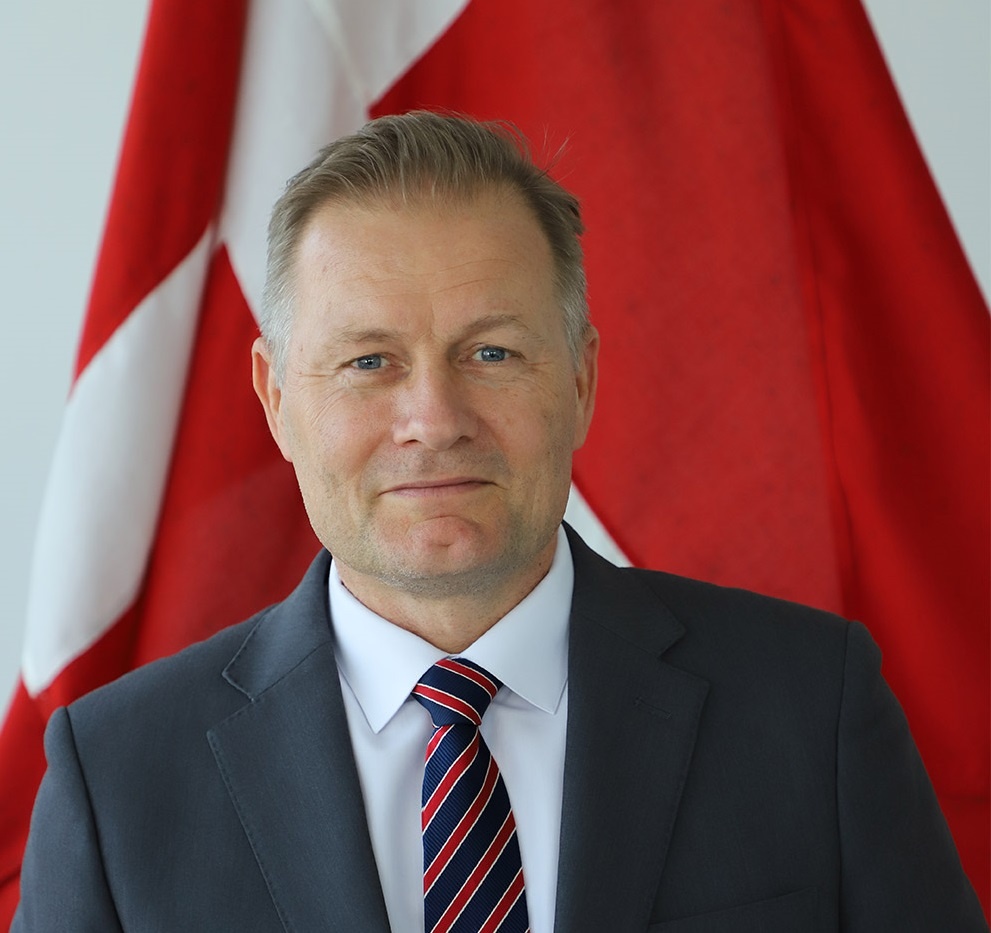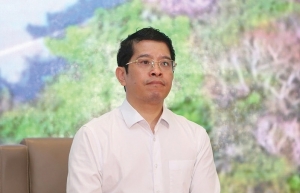Green transition efforts aided via global partnerships
The theme for the 2025 P4G Summit in Hanoi is “A Global Partnership for Inclusive, Sustainable, Innovative, and People-Centred Green Transition”. What is the significance of this theme to the global climate efforts?
 |
| Danish Ambassador Nicolai Prytz |
This year’s summit theme is highly important because it recognises that a successful green transition demands a comprehensive, multi-faceted approach. It is in tone with P4G’s objective, which places people at the centre of change, and implies that there is a strong connection between the green transition and climate change.
From a global perspective, this year’s summit comes in a timely manner. COP30 in Brazil, coming up this November, marks the 10th anniversary of the Paris Agreement, and coincides with each country’s obligation to submit updated and ambitious UN Nationally Determined Contributions, providing commitments to accelerate climate action and climate justice. According to the latest International Panel on Climate Change reports, it is clear that we must take action now if we are to prevent climate change from having irreversible consequences for the world and its inhabitants.
At the national level, the consequences of climate change are already evident, also in Vietnam. The impacts of Typhoon Yagi and the resulting floods in 2024 caused widespread destructions in the entire country. According to the World Bank, Vietnam is among the most vulnerable countries to climate change. Typhoons, floods, droughts, and landslides often threaten livelihoods, especially in rural areas. Vietnam also struggles with environmental issues, with, for example, Hanoi being ranked as one of the world’s most air polluted cities so far in 2025.
Tackling global challenges requires more than business as usual. Achieving sustainable development depends on fostering innovation through collective action. Governments must set ambitious frameworks, businesses should invest in green solutions, and young people and startups need to drive fresh ideas.
While action from historically high emitters is essential, it cannot stand alone – every country, including developing nations, must contribute. Vietnam has historically been a relatively minor emitter and accounts for only 0.8 per cent of current global emissions. However, rapid economic growth in recent decades has made Vietnam one of the most greenhouse gas-intensive economies in Southeast Asia when measured by emissions per unit of output.
Denmark has been a global leader in renewable energy and green technology. How do you see its role and contribution in shaping global green transition efforts?
Cooperation on energy has formed a significant part of bilateral relations between Vietnam and Denmark since 2009, particularly through the joint Energy Partnership Programme from 2013. With the purpose to support Vietnam’s transition to a low-carbon economy, Denmark contributes by sharing knowledge, competencies and Danish experiences from our own energy transition.
Denmark, along with the G7, EU and Norway, is also a member of the Just Energy Transition Partnership between Vietnam and the International Partners Group. This initiative initially pledged $15.5 billion, split between public and private funding, to support the decarbonisation of Vietnam’s energy system.
Denmark encourages collaboration between countries and sectors across the globe, recognising that strong partnerships are essential in tackling climate change, ensuring energy security, and other key agendas. Our contributions through P4G support our broader green transition and climate commitments that make Denmark a frontrunner in the green transition.
The country is also committed to shifting global financial flows from fossil fuels to green investments. We have reformed the Investment Fund for Developing Countries, significantly increasing its capital to boost climate financing. At least 30 per cent of Danish official development assistance now targets climate initiatives, and we actively mobilise private investments.
This year, the P4G summit is developing actionable strategies that can unlock investment for innovative and climate startups in emerging markets and developing economies. Why is this aspect vital for achieving our climate goals?
It is becoming increasingly clear that innovations and climate startups are crucial to a successful green transition, as cross-cutting solutions are needed to overcome the obstacles we face in achieving our climate goals. We need entrepreneurs bringing their full capacity to the table, since these borderless problems require new, innovative solutions.
In Vietnam, small- and medium-sized enterprises (SMEs) represent 98 per cent of all enterprises and are absolutely critical in encouraging green growth and achieving the country’s ambitious climate goals. Similarly, in Denmark, SMEs have been pivotal in driving progress on the green agenda where they make up a similar proportion of all enterprises.
Climate startups are of enormous importance because they can deliver the right solutions and thereby accelerate the green transition. Tech innovation, new investment models, and emerging markets are all expected to shape a future where sustainability is not just an option but a top priority. P4G responds to this need by helping early-stage businesses gain access to funding. It has provided grants averaging $350,000 to partnerships and has leveraged about $100 million in investments across 19 climate businesses to date.
As we transition to a green economy, there is a growing recognition that trade activities, environmental protection, and sustainable development are inseparable. In this context, P4G plays a vital role in boosting green and inclusive growth, serving as an inspiration for similar initiatives worldwide. With the global economy moving towards a greener, more circular and more innovative future, fostering opportunities for startups is essential.
 | Green-digital transition must start with proper mindset Firms are emphasising that effectively implementing green-digital transition strategies depends on understanding the core issues and priorities of the company, rather than merely following current trends. |
 | Dual transition to help firms of all sizes The green and digital dual transition is bringing transformative changes to Vietnam’s business community, but significant challenges in financial resources and policy frameworks need to be addressed for greater acceleration. |
 | Dual transition can motivate businesses Investing in green transformation will be a crucial tool for Vietnam to secure substantial advantages in global trade, Prof. Nguyen Dinh Tho, general director of the Institute of Strategy and Policy on Natural Resources and Environment, under the Ministry of Natural Resources and Environment, explained more to VIR’s Hoang Minh. |
What the stars mean:
★ Poor ★ ★ Promising ★★★ Good ★★★★ Very good ★★★★★ Exceptional
Related Contents
Latest News
More News
- Trung Nam-Sideros River consortium wins bid for LNG venture (January 30, 2026 | 11:16)
- Vietnam moves towards market-based fuel management with E10 rollout (January 30, 2026 | 11:10)
- Envision Energy, REE Group partner on 128MW wind projects (January 30, 2026 | 10:58)
- Vingroup consults on carbon credits for electric vehicle charging network (January 28, 2026 | 11:04)
- Bac Ai Pumped Storage Hydropower Plant to enter peak construction phase (January 27, 2026 | 08:00)
- ASEAN could scale up sustainable aviation fuel by 2050 (January 24, 2026 | 10:19)
- 64,000 hectares of sea allocated for offshore wind surveys (January 22, 2026 | 20:23)
- EVN secures financing for Quang Trach II LNG power plant (January 17, 2026 | 15:55)
- PC1 teams up with DENZAI on regional wind projects (January 16, 2026 | 21:18)
- Innovation and ESG practices drive green transition in the digital era (January 16, 2026 | 16:51)

 Tag:
Tag:




















 Mobile Version
Mobile Version